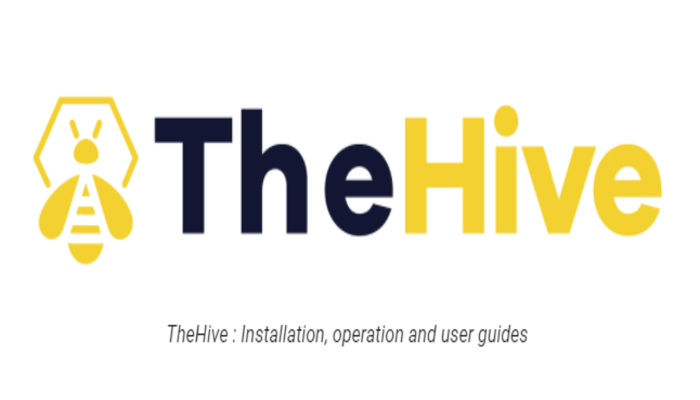This page is a step by step installation and configuration guide to get an TheHive 4 instance up and running. This guide is illustrated with examples for Debian packages based systems and for installation from binary packages.
Java Virtual Machine
apt-get install -y openjdk-8-jre-headless
echo JAVA_HOME="/usr/lib/jvm/java-8-openjdk-amd64" >> /etc/environment
export JAVA_HOME="/usr/lib/jvm/java-8-openjdk-amd64"Note
TheHive can be loaded by Java 11, but not the stable version of Cassandra, which still requires Java 8. If you set up a cluster for the database distinct from TheHive servers:
- Cassandra nodes can be loaded by Java 8
- TheHive nodes can be loaded by Java 11
For standalone servers, with TheHive and Cassandra on the same OS, we recommend having only Java 8 installed for both applications.
Cassandra database
Apache Cassandra is a scalable and high available database. TheHive supports the latest stable version 3.11.x of Cassandra.
Install from repository
Add Apache repository references
curl -fsSL https://www.apache.org/dist/cassandra/KEYS | sudo apt-key add -
echo "deb http://www.apache.org/dist/cassandra/debian 311x main" | sudo tee -a /etc/apt/sources.list.d/cassandra.sources.listInstall the package
sudo apt update
sudo apt install cassandraBy default, data is stored in /var/lib/cassandra.
Configuration
Start by changing the cluster_name with thp. Run the command cqlsh:
cqlsh localhost 9042cqlsh> UPDATE system.local SET cluster_name = 'thp' where key='local';Exit and then run:
nodetool flushConfigure Cassandra by editing /etc/cassandra/cassandra.yaml file.
# content from /etc/cassandra/cassandra.yaml
cluster_name: 'thp'
listen_address: 'xx.xx.xx.xx' # address for nodes
rpc_address: 'xx.xx.xx.xx' # address for clients
seed_provider:
- class_name: org.apache.cassandra.locator.SimpleSeedProvider
parameters:
# Ex: "<ip1>,<ip2>,<ip3>"
- seeds: 'xx.xx.xx.xx' # self for the first node
data_file_directories:
- '/var/lib/cassandra/data'
commitlog_directory: '/var/lib/cassandra/commitlog'
saved_caches_directory: '/var/lib/cassandra/saved_caches'
hints_directory:
- '/var/lib/cassandra/hints'Then restart the service:
service cassandra restartBy default Cassandra listens on 7000/tcp (inter-node), 9042/tcp (client).
File storage
Files uploaded in TheHive (in task logs or in observables) can be stores in localsystem, in a Hadoop filesystem (recommended) or in the graph database.
For standalone production and test servers , we recommends using local filesystem. If you think about building a cluster with TheHive, you have several possible solutions: using Hadoop or S3 services .
This option is perfect for standalone servers. If you intend to build a cluster for your instance of TheHive 4 we recommend:
- using a NFS share, common to all nodes
- having a look at storage solutions implementing S3 or HDFS.
To store files on the local filesystem, start by choosing the dedicated folder:
mkdir -p /opt/thp/thehive/filesThis path will be used in the configuration of the applicaction.
Later, after having installed TheHive, ensure the user thehive owns the path chosen for storing files:
chown -R thehive:thehive /opt/thp/thehive/files
TheHive
This part contains instructions to install The Hive and then configure it.
TheHive4 can’t be installed on the same server than older versions. We recommend installing it on a new server, especially if a migration is foreseen
Installation
All packages are published on our packages repository. . Its fingerprint is 0CD5 AC59 DE5C 5A8E 0EE1 3849 3D99 BB18 562C BC1C.
curl https://raw.githubusercontent.com/TheHive-Project/TheHive/master/PGP-PUBLIC-KEY | sudo apt-key add -The hive also release stable and beta version of the applications.
Stable versions
echo 'deb https://deb.thehive-project.org release main' | sudo tee -a /etc/apt/sources.list.d/thehive-project.list
sudo apt-get update
sudo apt-get install thehive4Beta versions
echo 'deb https://deb.thehive-project.org beta main' | sudo tee -a /etc/apt/sources.list.d/thehive-project.list
sudo apt-get update
sudo apt-get install thehive4We recommend using or playing with Beta version for testing purpose only.
Configuration
Following configurations are required to start the app successfully:
- Secret key configuration
- Database configuration
- File storage configuration
Secret key configuration
The secret key is automatically generated and stored in /etc/thehive/secret.conf by package installation script.Database
To use Cassandra database, TheHive configuration file (/etc/thehive/application.conf) has to be edited and updated with following lines:
db {
provider: janusgraph
janusgraph {
storage {
backend: cql
hostname: ["127.0.0.1"] # seed node ip addresses
#username: "<cassandra_username>" # login to connect to database (if configured in Cassandra)
#password: "<cassandra_passowrd"
cql {
cluster-name: thp # cluster name
keyspace: thehive # name of the keyspace
local-datacenter: datacenter1 # name of the datacenter where TheHive runs (relevant only on multi datacenter setup)
# replication-factor: 2 # number of replica
read-consistency-level: ONE
write-consistency-level: ONE
}
}
}
}Filesystem
1:If you chose to store files on the local filesystem:
Ensure permission of the folder
chown -R thehive:thehive /opt/thp/thehive/files
2: add following lines to TheHive configuration file (/etc/thehive/application.conf)
## Storage configuration
storage {
provider = localfs
localfs.location = /opt/thp/thehive/files
}Run
Save configuration file and run the service:
service thehive startPlease note that the service may take some time to start. Once it is started, you may launch your browser and connect to http://YOUR_SERVER_ADDRESS:9000/.




